Best Household Cleaners for Different Jobs

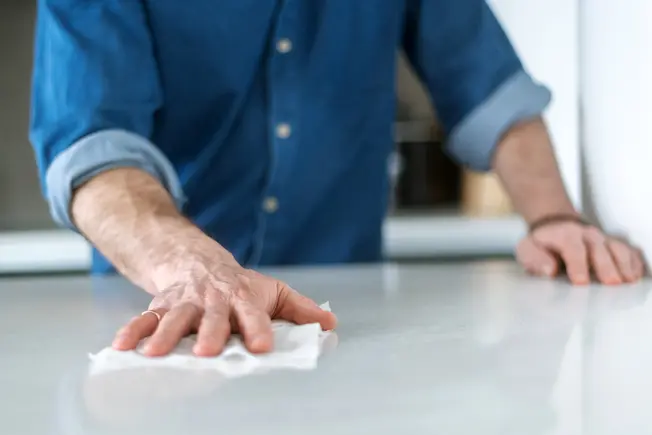
New Coronavirus (SARS-CoV-2)
According to the CDC, most household cleaners will effectively disinfect. Natural products like vinegar or tea tree oil won’t kill coronaviruses though.
Disinfectants that work include:
- Bleach solution (4 teaspoons of bleach in a quart of water)
- Rubbing (isopropyl) alcohol or wipes with 70% alcohol or higher (vodka and other liquors lack enough concentration)
- Alcohol-based hand sanitizers with at least 60% alcohol
- Soap and water (wash hands for at least 20 seconds)
- Hydrogen peroxide
Soak the cleaning solution on countertops or other surfaces for 30 seconds or longer before wiping it down. Diluted bleach loses strength with time, so mix only what you need for the day.
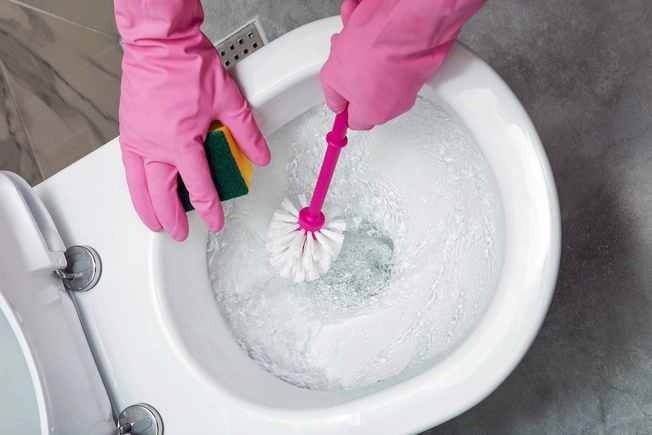
Toilet Ring
Ever wonder why the ring in your bowl is pink? The reddish slime is the pigment from moisture-loving bacteria called Serratia marcescens. The germs cause urinary, respiratory, and other infections. But the stuff in your toilet or shower stall is pretty harmless. A good scrub with a cleaner with bleach ought to banish it.
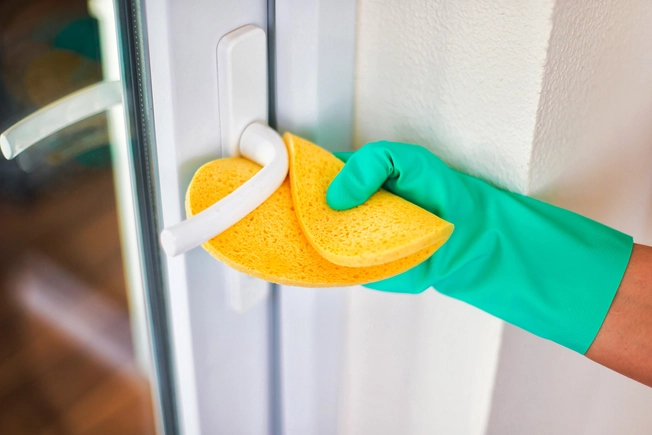
Norovirus
Some people call it the stomach bug. It spreads easily, so clean and disinfect doorknobs, toilet flushes, and other surfaces you touch often right away. Norovirus can survive rubbing alcohol and some chemicals. A mix of bleach and water or a bleach-based cleaner are your best bets. Also good are hydrogen peroxide and wipes made with a different type of alcohol called ethyl alcohol. Wash dirty laundry in hot water and bleach if you can.
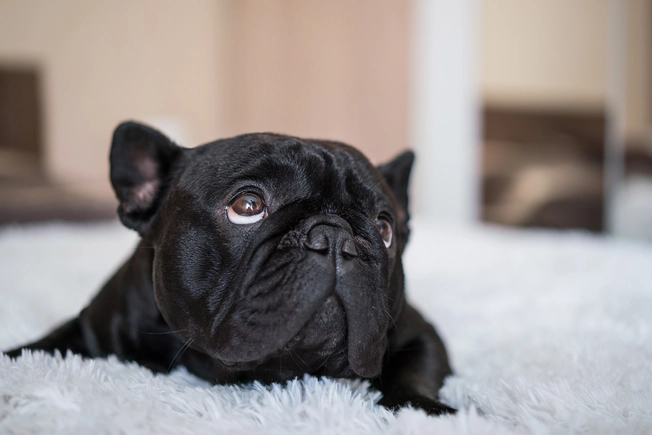
Pet Accidents
The key is to act quickly before the mess dries. Blot wet stains with paper towels and scoop up as much of the solids as you can. Avoid rubbing, which pushes the mess in deeper. Spray water mixed with a bit of liquid dish detergent. You may add vinegar to help neutralize the ammonia odor. Blot to rinse and repeat as needed. Then pile on baking soda and vacuum the next day. Some experts say vinegar may encourage your pet to mark the area. Tough jobs may call for professional carpet and furniture cleaning.
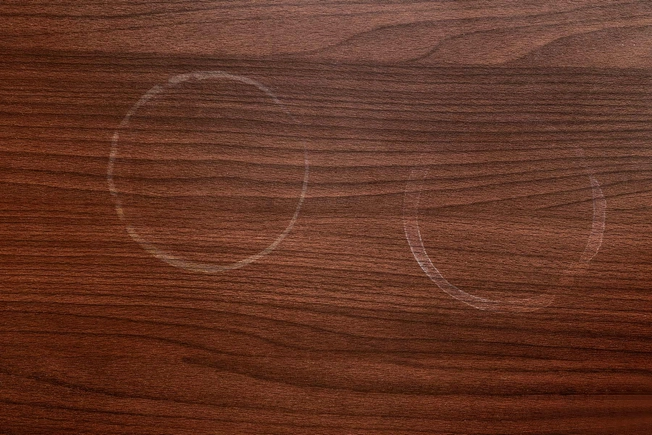
Water Marks
A hazy white stain on your wood furniture means that moisture is trapped under the top finish. That’s easier to get out than black stains, which go deeper into the pores of the wood. The safest way to dry out the white rings is with a hair dryer on low heat. Keep it several inches away from the wood and check often to prevent damage to the sheen. Mayonnaise is another proven standby. Dab it on a rag and gently massage the stain. You also can let the mayo sit for a few hours, then wipe away. Always test a hidden spot on your furniture before you start.
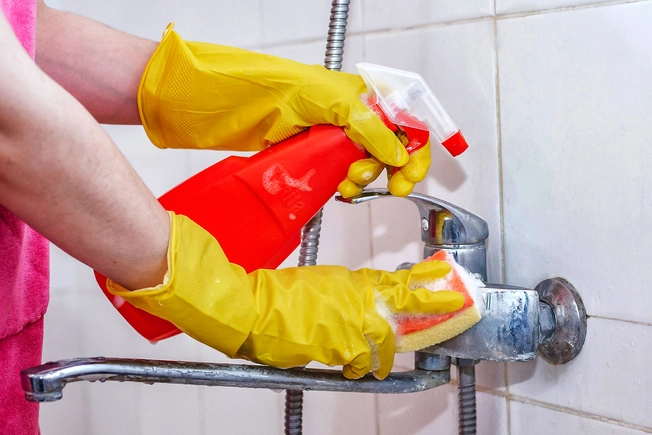
Soap Scum
Store-bought cleaners work well to break down this stubborn mineral deposit. If you like to DIY, mix baking soda and white vinegar into a paste. Or pour equal amounts of vinegar and water and a tablespoon of dish soap into a spray bottle. Squirt it on your tub and shower and wait 15 minutes before you scrub and rinse. To help prevent soap buildup, you might skip the bar soap for liquid body wash, which is actually a detergent, which doesn’t form scum.
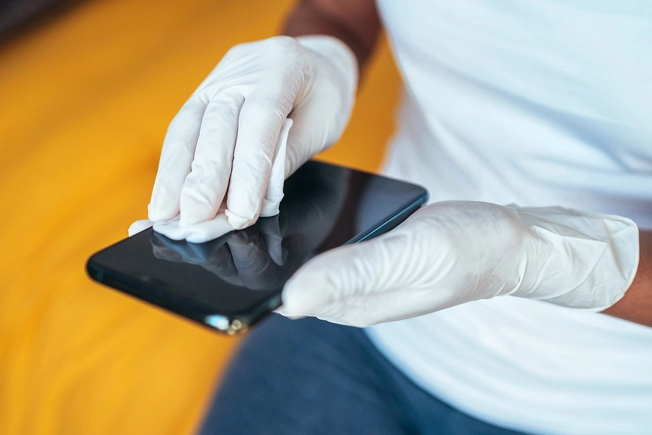
Electronics
First, turn off your smartphone, tablet, or laptop. Wipe off dust with a soft cloth. You may sanitize it with a cloth slightly dampened with 70% rubbing alcohol. If you simply want to clean your device, you can use water instead. Avoid getting openings like speakers and charger ports wet. Don’t use bleach, cleaning products, or anything abrasive that might mar the coating.
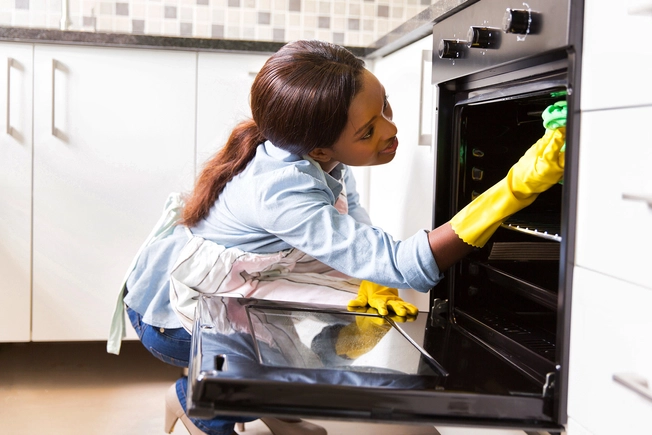
Grease
You can’t go wrong with warm, soapy water. Ammonia is safe for removing grease and grime from glass and stainless ovens or ranges. You may follow up with a cloth dampened with water to prevent hazing. You can pop many vent hood filters in the dishwasher. Or make your own degreaser by adding 1/2 cup of baking soda to hot soapy water. Vinegar also can take off sticky residues.
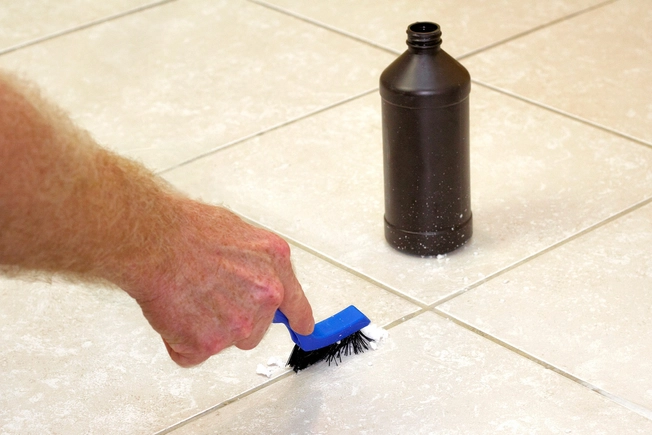
Grout
It’s mostly cement and sand -- and very porous. Acidic cleaners like vinegar and hard scrubbing may etch away the top layer of the grout. Instead, reach for alkaline cleaners like baking soda or borax. Dip a toothbrush in soapy water and then into the cleaning powder. Rub gently to loosen the oily dirt. The key thing is to rinse thoroughly to remove any trace of soap film. If you can, use a shop vac to remove dirty water, which may soak into the grout and damage it.
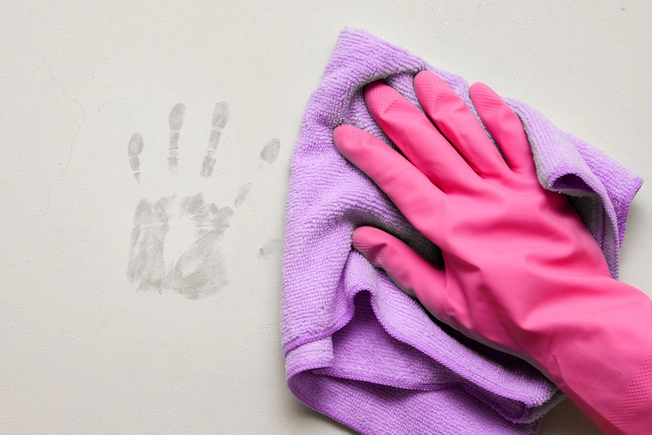
Grimy Walls
Fingerprints and smudges on your painted walls? Prep them for cleaning by dusting with a tack cloth or cheesecloth. Next, wipe gently with mild soapy water, followed by clean water. Easy does it -- you don’t want to strip the paint. For grease marks, swipe an equal mix of white vinegar and hot water, wait a few minutes, and then dry with a rag. Or rub a paste of baking soda and water on the stain and wipe clean.
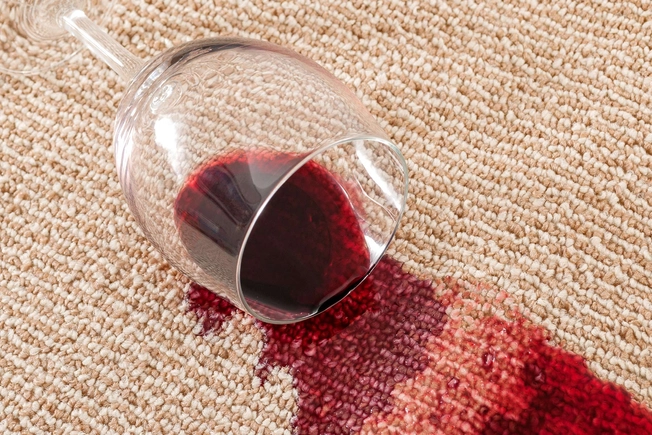
Coffee and Wine Stains
Both stains can turn colorless if they’re “oxidized,” and one of the most effective oxidizers is chlorine bleach. That might be OK for your white tablecloth. For carpet and colored fabrics, quickly soak up the stain with paper towel. For coffee, cover the area with a pad soaked in a bit of vinegar mixed with water and dish detergent. Blot and repeat, then flush with water. Do the same for wine stains, except you can use ammonia in place of vinegar.
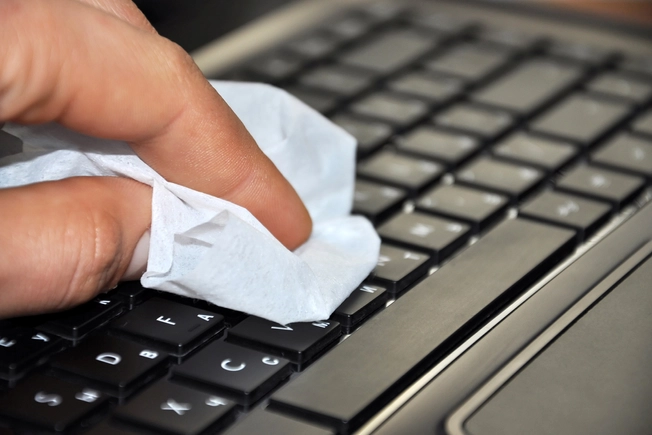
Computer Keyboards
Dislodging the food, dust, and other gross stuff stuck in between the keys the right way can save you an expensive repair. Unplug your keyboard or turn off your laptop and detach the charger. Turn it upside down and shake it gently. Hold the keyboard almost vertically to tap gravity and spray back and forth with a can of compressed air. Rotate the keyboard like turning a wheel and spray again. Moisten a paper towel with rubbing alcohol and wipe the tops of the keys.
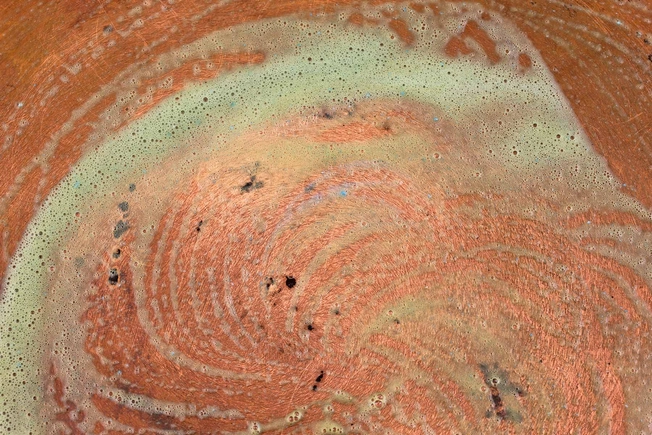
Copper Pots
This beautiful cookware tarnishes easily. Reach in your fridge or kitchen cabinet for stuff to restore the shine. Citric acid reacts with the black copper (II) oxide so it can wash off. Worcestershire sauce works. Another option that takes some elbow grease is lemon juice and salt. Dip a half lemon into table salt, scrub, and rinse with soap and water.